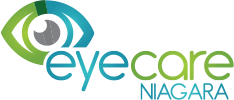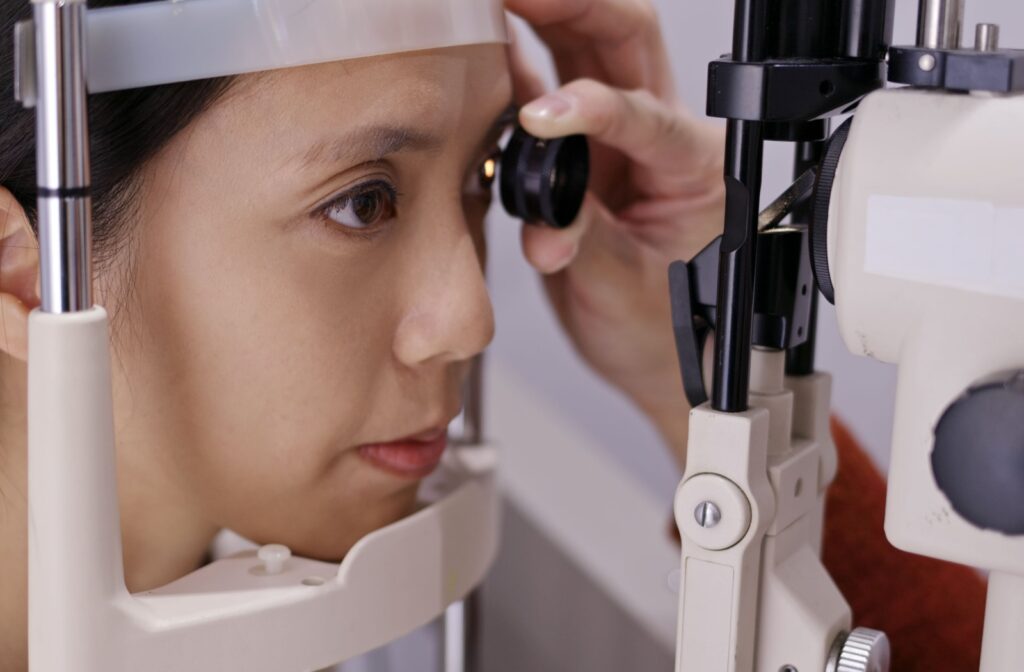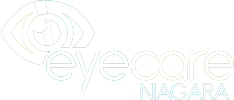Your routine eye exam is about more than just updating your glasses or contact lens prescription. It’s a direct look at the health of your eyes and a key part of your overall wellness. During a comprehensive eye exam, we can spot the early signs of several eye diseases, often before you notice any symptoms yourself.
That’s why it’s so important that you schedule regular eye exams. A comprehensive eye exam can detect a number of common eye conditions, including glaucoma, cataracts, age-related macular degeneration, and retinal detachment. Finding these conditions early gives you the best chance to manage them effectively.
More Than A Vision Test—The Comprehensive Eye Exam
Sight tests and eye exams are actually different things. A sight test usually just checks whether your vision needs to be corrected. On the other hand, a full eye exam is a thorough check of your vision and the health of your eyes, inside and out.
What Happens During An Exam
During a comprehensive eye exam, we take a detailed look at many aspects of your vision and eye health. Your exam often includes:
- A review of your personal and family health history
- Tests for visual acuity to see how clearly you see at different distances
- Checks for refractive errors like nearsightedness or astigmatism
- An assessment of your eye coordination and focusing abilities
- A look at the external and internal parts of your eye
Common Eye Conditions Found During An Exam
Many eye diseases develop slowly without obvious warning signs. Here are some of the common eye diseases we can detect during a routine check-up.
Glaucoma
Often called the “silent thief of vision,” glaucoma damages the optic nerve, the connection between your eye and brain. Glaucoma typically has no early symptoms, and if left untreated, it can lead to a gradual loss of peripheral vision.
Cataracts
A cataract is the clouding of the lens inside your eye, which can make your vision blurry, hazy, or less colourful. While cataracts are a common part of aging, eye exams help us manage the changes that they cause to your vision.
Age-Related Macular Degeneration (AMD)
Age-related macular degeneration (AMD) affects your central vision, which you need for precise visual tasks like reading, driving, and seeing faces clearly. An eye exam can detect early signs of AMD. This is important for slowing its progression.
Retinal Detachment
This is a serious condition where the retina (the light-sensitive layer at the back of the eye) pulls away from its normal position. A retinal detachment requires prompt attention to protect your vision. Some signs can include:
- A sudden increase in floaters or flashes of light
- The appearance of a curtain or shadow over your field of vision
Dry Eye Disease
This common condition occurs when your eyes don’t produce enough tears or the right quality of tears. We can help identify the cause and suggest treatments for dry eye to manage the discomfort. Symptoms frequently include:
- A stinging or burning sensation in your eyes
- Blurry vision, especially when reading
- Redness and irritation

How Your Optometrist Checks Your Eye Health
To identify these conditions, your optometrist uses a range of diagnostic tools and tests. Some of these include:
A View Of Your Retina & Optic Nerve
We look at the back of your eye to examine the health of the retina, the optic nerve, and the small blood vessels. This view, sometimes achieved with a dilated eye exam, is key to spotting signs of conditions like glaucoma and AMD. It gives us a clear window into the health of your inner eye structures.
Eye Pressure Measurement
A quick and simple test measures the fluid pressure inside your eyes. Higher-than-normal pressure can be a risk factor for glaucoma. This check is an important part of a comprehensive adult eye exam.
Visual Field Test
This test checks your full range of vision, including your peripheral (side) vision. It also helps detect blind spots you may not be aware of.
Early Detection & Your Vision
The main benefit of detecting eye diseases early is that it gives you more options to manage them. For many conditions, early steps can help protect your sight. This helps you maintain your quality of life for years to come.
The Importance Of A Baseline
Regular adult and senior eye exams allow your optometrist to establish a baseline of your eye health. By comparing results from year to year, we can detect even small changes right away. This history is valuable for monitoring your long-term eye health.
Personalized Advice For Your Eyes
Based on your exam, we can give you specific advice for your needs. This could be a new prescription or lifestyle recommendations to support eye health, such as tips for managing digital eye strain. It might also include a plan for managing a developing condition.
Connect With Our Optometrists In St. Catharines
Taking a proactive approach to your eye health starts with a comprehensive exam. It’s an opportunity to ask questions and get a clear understanding of your vision and eye health from a trusted professional. We are here to listen to your concerns and provide clear answers.
What Happens After An Eye Disease Is Detected
If we find signs of an eye disease, we’ll explain what it means and then discuss your next steps. Our approach to eye disease diagnosis and management involves monitoring the condition, prescribing treatment, or recommending further tests. You’ll be part of the conversation every step of the way.
Schedule Your Next Eye Exam
Regular eye health checks are a simple step you can take for your long-term vision. An eye exam provides peace of mind and makes sure you get the care you need when you need it. It’s a small investment of time for a lifetime of sight.If it’s time for your next check-up, our team at EyeCare Niagara is ready to help. Contact us today to schedule your appointment.




